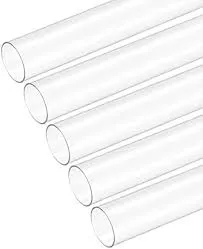pro . 09, 2024 15:23 Back to list
hdpe pipe coupling
Understanding HDPE Pipe Couplings Features and Applications
High-Density Polyethylene (HDPE) pipes have gained immense popularity in various industries due to their durability, lightweight properties, and excellent resistance to corrosion and chemicals. One of the essential components in the installation and maintenance of HDPE piping systems is the coupling. This article delves into HDPE pipe couplings, their types, features, and applications, highlighting their significance in modern piping systems.
What are HDPE Pipe Couplings?
HDPE pipe couplings are fittings used to connect two sections of HDPE pipes. They serve as an essential link in various piping systems, ensuring fluid transfer remains consistent and leak-free. The coupling provides structural integrity, allowing the pipeline to function seamlessly even under high-pressure conditions.
Types of HDPE Pipe Couplings
HDPE couplings can be categorized into several types, each designed for specific applications and requirements
1. Mechanical Couplings These are widely used due to their ease of installation. Mechanical couplings utilize bolts and clamps to securely join HDPE pipes, providing a reliable and robust connection. They can accommodate small misalignments, making them suitable for dynamic applications.
2. Electrofusion Couplings This type requires electrofusion fittings that employ an electric current to heat and fuse the pipes together. This method creates a strong chemical bond, effectively joining the HDPE pipes without the need for additional adhesives or welding. Electrofusion couplings are preferred for their ability to handle high pressures and are commonly used in critical applications.
3. Butt Fusion Couplings Butt fusion is another popular method for joining HDPE pipes, where the ends of the pipes are heated until they melt and then pressed together. This technique forms a continuous and leak-proof joint, making butt fusion couplings ideal for high-stress environments.
4. Transition Couplings These couplings are designed to connect HDPE pipes to other types of piping materials such as steel or PVC. Transition couplings play a crucial role in systems where different materials are used, providing a seamless transition and maintaining system integrity.
Key Features of HDPE Pipe Couplings
HDPE pipe couplings offer several features that contribute to their effectiveness
hdpe pipe coupling

- Corrosion Resistance HDPE materials are naturally resistant to corrosion caused by chemicals and environmental factors, ensuring longevity and reduced maintenance costs.
- Flexibility and Lightweight The lightweight nature of HDPE allows for easy handling and installation, reducing labor and equipment costs.
- Durability HDPE couplings are designed to withstand harsh conditions, including extreme temperatures, pressure variations, and impact, providing a reliable solution over time.
- Leak-Free Connections With proper installation, HDPE couplings create tight, leak-proof seals, minimizing the risk of water loss and environmental contamination.
Applications of HDPE Pipe Couplings
The versatility of HDPE pipe couplings allows them to be utilized in various applications across multiple industries
- Water Distribution Systems HDPE pipe couplings are commonly employed in municipal water supply networks, ensuring safe and efficient transportation of potable water.
- Sewage and Wastewater Management In sewer systems and wastewater treatment facilities, HDPE couplings help manage the flow of sewage, providing a durable and corrosion-resistant solution.
- Irrigation Systems In agriculture, HDPE couplings facilitate effective water management for irrigation, enhancing crop yields and ensuring efficient water usage.
- Industrial Applications Industries such as mining, chemical processing, and oil and gas use HDPE pipe couplings for transferring various liquids and gases.
Conclusion
HDPE pipe couplings play a crucial role in ensuring the integrity, efficiency, and longevity of HDPE piping systems. Their various types, coupled with their superior qualities, make them an essential component across diverse industries. Whether for water distribution, sewage management, or other applications, selecting the right HDPE coupling can significantly impact the overall performance and reliability of a piping system. As industries continue to evolve, the demand for innovative and durable solutions like HDPE couplings will undoubtedly remain strong.
-
Durable PP Rigid Sheet: Lightweight, Chemical Resistant Solutions
NewsAug.21,2025
-
PVC Grey Sheet for Extraction: Chemical Resistant & Durable
NewsAug.19,2025
-
Durable PVC Pipe Fittings for Plumbing & Irrigation Needs
NewsAug.18,2025
-
HDPE Steel Belt Reinforced Spiral Corrugated Pipe | High Strength
NewsAug.17,2025
-
HDPE Pipe Fittings: Durable, Leak-Proof Solutions
NewsAug.16,2025
-
Premium CPVC Sheet: High-Temp & Chemical Resistant Solutions
NewsAug.15,2025

